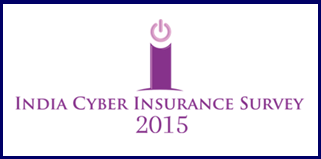The vagaries of weather are a risk that Indian farmers need to manage as part of their life. Those who cannot face problems in the form of inability to repay farm loans taken from the loan sharks in the village. This has given rise to many farmers committing suicides and reflecting on the Governance aspects of the relevant State Governments. The Central Government is trying tackle the problem with its own policy on “More Crop for Every Drop” and encouraging drip irrigation to conserve water and ensure a larger area of irrigation. Today the RBI has also moved in the right direction reiterating the need for Banks to participate in direct farm lending so that low cost funds become available to the farmers and their dependence on local loan sharks is reduced. In the last few years, the emphasis on farm loans for Banks had been reduced and hence the flow of credit had fallen.
The response of Modi’s Government and the RBI are pragmatic and could reduce the farmer’s vows. It shows that the Government and RBI is learning lessons from past mistakes and inaction.
It would however be wiser if we can anticipate the adverse impact of a policy on the society and respond pro-actively than reacting to the adverse events after it has taken away precious lives.
Digital India is now calling for similar pragmatism and wisdom from the Government. If the Government has not realized the threat of Cyber Frauds in the increased digitization of the Banking and Governance systems in India, we can only say that the Government is blind. While the Ministry of IT has come up with a report on Net Neutrality, it has not yet come up with any report or policy on “Cyber Frauds”.
In the case of farmer’s suicides it is the inability to repay the loans and only those farmers who feel humiliated by being an insolvent commit suicide. But Cyber Frauds make a comfortable citizen suddenly turn a pauper when his bank account is wiped out. This is more shocking than the vows of the farmer. If there are any suicides in this class of Cyber Fraud victims, it is unlikely that it will get the same publicity as the farmer’s suicides until a time when thousands of frauds get reported simultaneously.
Let the Government take notice that frauds are happening in hundreds and not all of them get reported. May be the losses are in smaller amounts of less than a lakh and hence the victims are some how absorbing the risks.
The Government on the other hand has done pretty little in this area. In fact it has not been able to put the Cyber Judiciary in place. The Chair Person for Cyber Appellate Tribunal has not yet been appointed and Adjudicators in States are non functional. But the DEITY remains unconcerned. Mr Ravi Shankar Prasad remains stoic. Mr Modi in the mean time keeps pushing the Digital India process. This is a recipie for disaster.
I would like to highlight here that any policy change that does not take into account the problems of the society will lead to disaster. It is therefore necessary for the Government of India to address the issue of securing the public against Cyber Fraud losses before it is too late.
It is in this context that Naavi.org demands “Cyber Insurance For All” as a policy of the Government. To us, this is more important than the Net Neutrality debate.
Will the Government wake up?
P.S: If you have not participated in the India Cyber Insurance Survey 2015, it is time you do so now and record your views. You can access the survey form here.
Naavi






